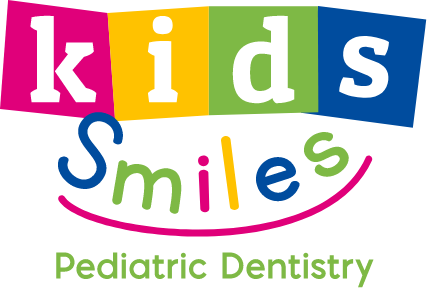When a baby starts teething, this can be a difficult time for parents! Your little one is going through the monumental process of growing new teeth, and you aren’t too sure what’s happening below the gum surface.
Your friends at Kids Smiles Pediatric Dentistry are here to help guide you through your baby’s dental milestones to make the process as smooth as possible for both you and baby.
It’s important to understand what to expect and how to best support your baby throughout the teething process. Here are the 5 stages of teething:
How long does teething last?
Teething typically begins around 6 months of age and can last up to 3 years. However, teething is not a continuous process. Your baby will only experience teething symptoms for about a week at a time as teeth are actively erupting.
Signs of teething include sore or red gums, a mild temperature increase, dribbling and drooling, gnawing and chewing on things, and potential irritability.
How long do teething symptoms last before teeth appear?
You may notice teething symptoms months before any teeth start to emerge. The first stage of teething occurs from birth to about 6 months, before any teeth are nearing the surface of the gums. Around 6 months, the first teeth start to emerge and teething symptoms become more noticeable.
Teething stages
Stage 1 (0-6 months)
This is the stage before teeth start to erupt through the gums. Babies have all 20 teeth located in the jawbone, beneath the gums. These primary teeth growing to the surface are called “milk teeth”, because during this time, the baby’s diet is primarily milk from mom.
During stage 1, you can help your baby adjust to the teething process by gently massaging her or her gums with a clean finger or damp washcloth.
Stage 2 (6-8 months)
This is when the first teeth (incisors) start to erupt. As the teeth start applying pressure directly on the gums, this can cause your baby to chew objects, chew his or her hands, and express irritation.
During stage 2, when your baby is teething at 8 months, you can help relieve your baby’s discomfort by providing a teething ring made of non-toxic, hard rubber.
Remember, your baby’s first dentist visit should be scheduled within 6 months of his or her first tooth appearing. At this visit, we’ll start monitoring your child’s growth and development and create a prevention plan to avoid potential dental problems.
Stage 3 (10-14 months)
As the primary molars start to emerge and break through the gums, your child may start to drool, become fussier and lose their appetite. They can also become more restless and wake up through the night.
During stage 3, providing hard, safe-to-eat foods for your baby is ideal. Solid vegetables like cucumbers cut up into tiny pieces can be relieving for your child.
Stage 4 (16-22 months)
Canine teeth then start to surface, and the same symptoms from stage 4 are felt.
Try chilling a washcloth or teething ring for your child! Don’t freeze the item all the way. This can harm your baby’s gums. Put them in the fridge or freezer for a short period and feel the teething ring with clean hands to check the temperature.
Stage 5 (25-33 months)
In the final teething stage, the large molars are emerging. These are the biggest teeth and often the most uncomfortable throughout the teething process.
Your baby may experience heightened fussiness, waking in their sleep, and biting on objects. You may find that massaging their gums doesn’t help. Try giving your baby harder food (like cucumbers) and monitoring them to ensure that they don’t choke.
Still have questions about the teething process?
We’re more than happy to help you navigate the teething process! You don’t have to feel overwhelmed or in-the-dark about your child’s development. That’s what we’re here for.
Our team is led by Dr. Frank Sierra who has over two decades of experience caring for children. From your child’s first tooth to his or her last tooth emerging, we’re here to support you.
Learn more about growth and development care and schedule an appointment with us in Town ‘n’ Country, South Tampa, North Tampa, or East Bradenton!


